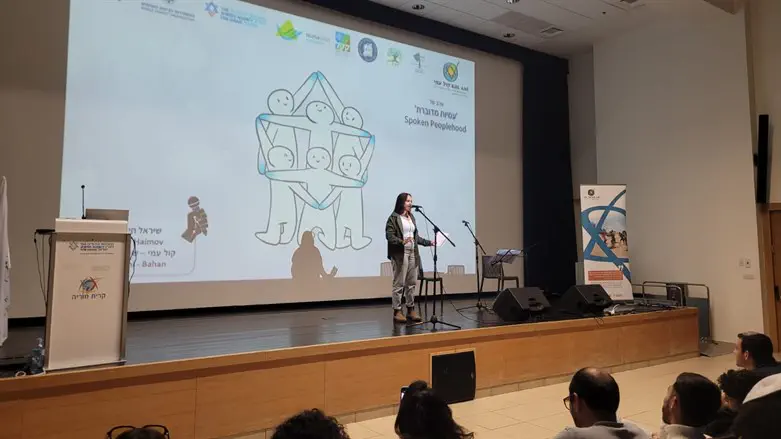
Despite severe social tensions in Israel that could lead to division in society, and various challenges facing Jewish communities around the world, there are organizations working to bridge the gap between Hatfuzot Jewry and Israeli society. One such institution is the Kol Ami Preparatory School, where Jewish students from Israel and abroad come together to learn about life in Israel and the differences and commonalities between their cultures.
In preparation for Hatfuzot (Diaspora) Week, which will take place next week with the purpose of connecting Israelis and Jews in the diaspora, the preparatory school held a Spoken Word evening. During this event, students shared their experiences of life together as Israeli and diaspora Jews.
Ohad Medalel, a trainee at the preparatory school, described his initial meeting with students from other countries as an extraordinary experience. "Language was a barrier at the beginning, but we soon realized that everyone is made of the same material," Medalel says, adding that the friendships that were formed were strong and lasting.
Shai, a trainee from New York, had an insight that surprised him: "In the United States, you have to be Jewish in a really practical way for it to be part of your identity. But here in Israel, it is much simpler. The mere fact that you live in Israel is enough, and it is a refreshing experience."
The students learned that someone who lives in Israel is not necessarily more Zionist than someone who lives abroad and that it is not easy to live abroad as a Jew. Many of the students at Kol Ami will maintain connections made during their time there, and some have even made friends for life.
Student Chaya Lifshitz says, "I came to the school to get to know other Jews who live outside of Israel, and to my delight, I discovered different and interesting Jewish cultures and made friends for life." Shay plans to keep in touch and visit his new friends in Israel.
It seems that the relationship between Israel and the Diaspora can and should begin at a young age and that these connections can open the door to a future connection between Israelis and Hatfuzot Jews that will help them through both challenging and happy times, such as Hatfuzot Week.
